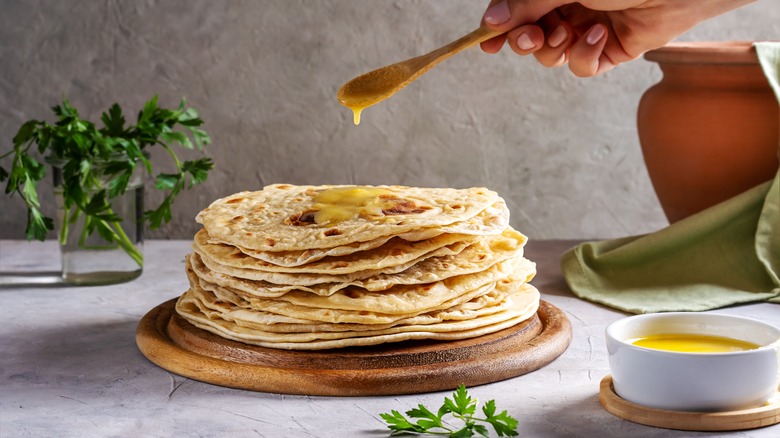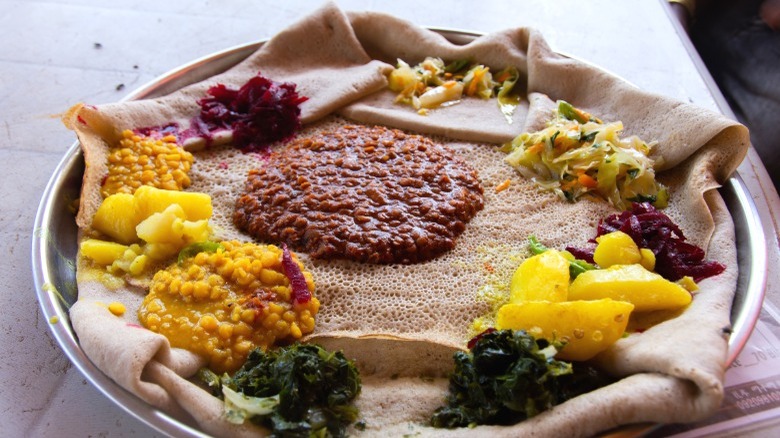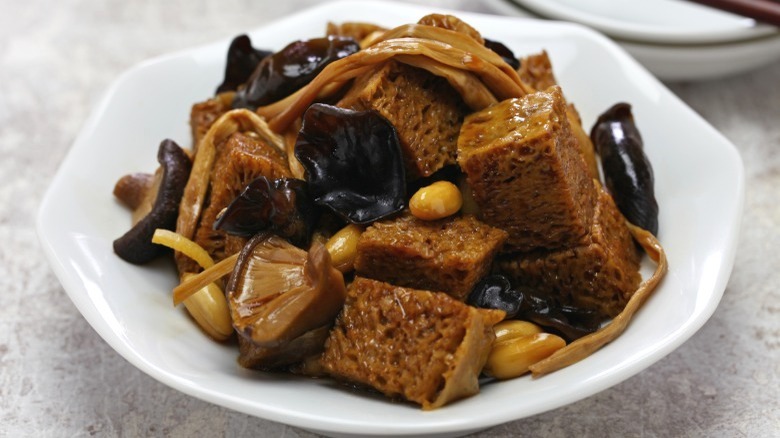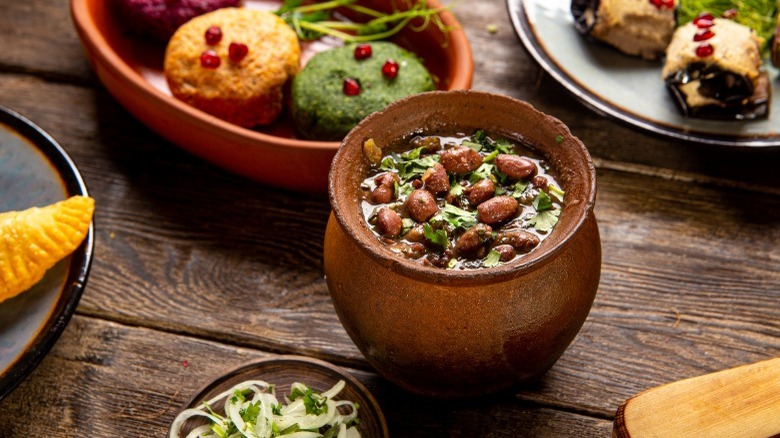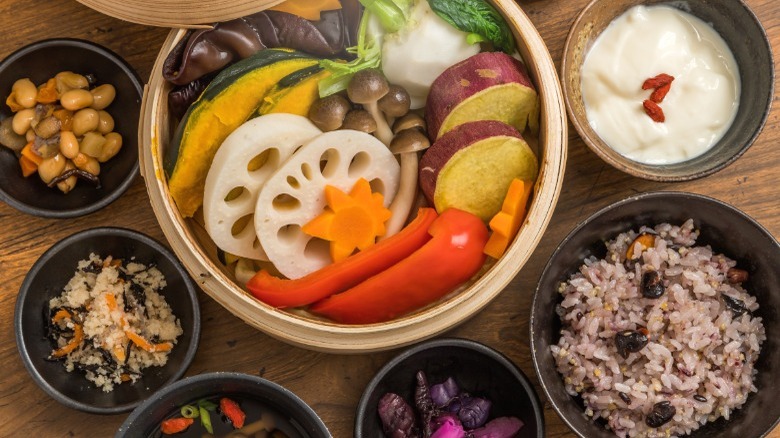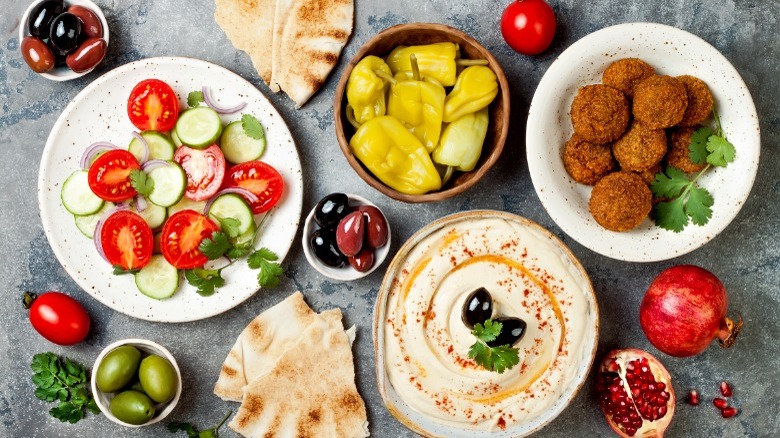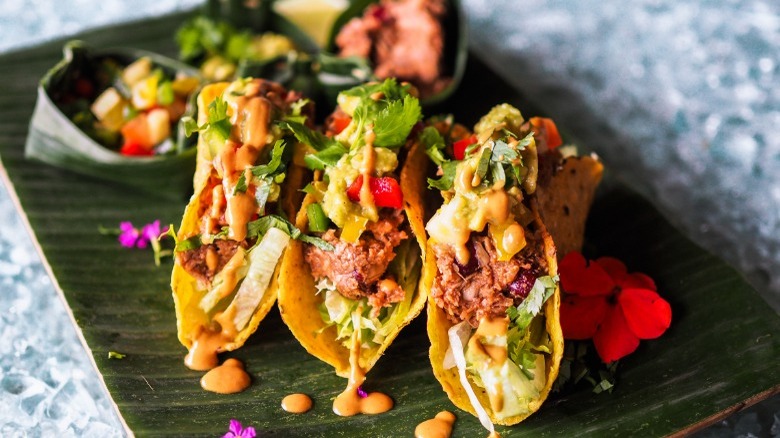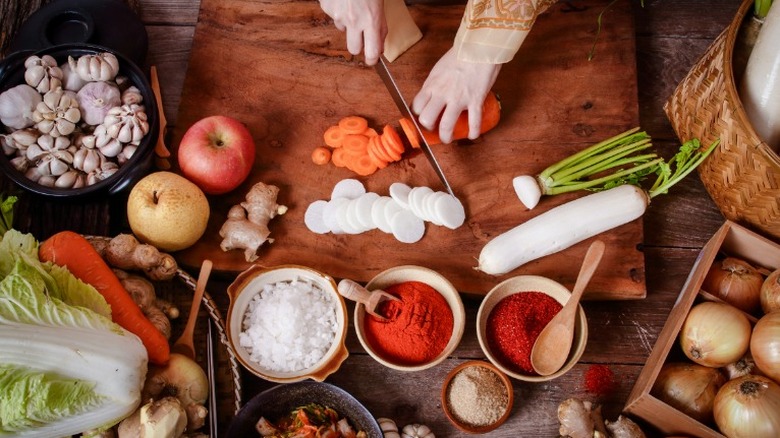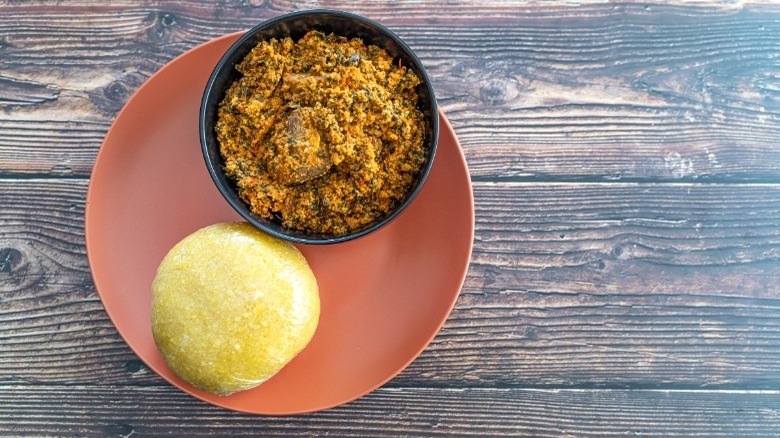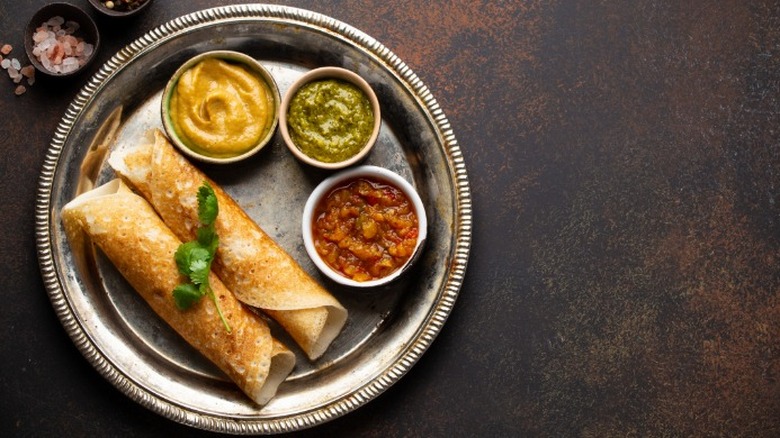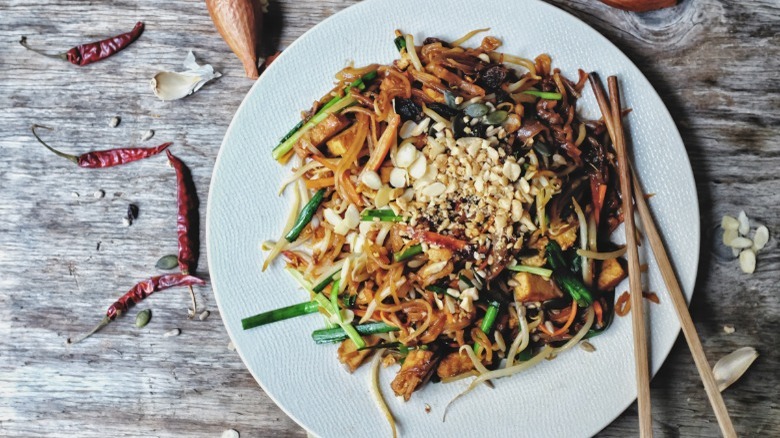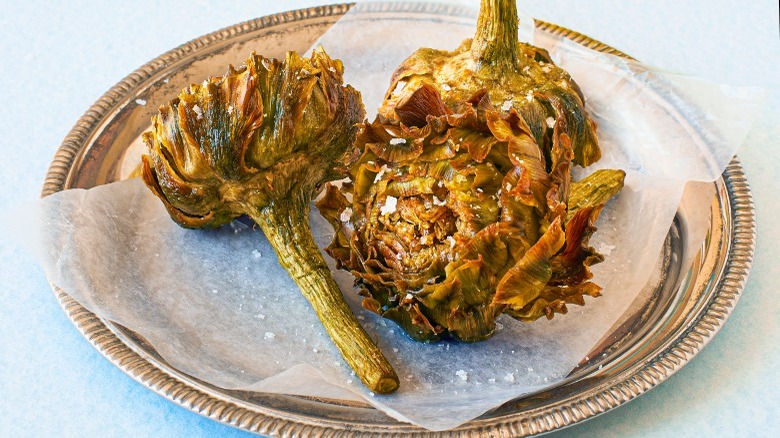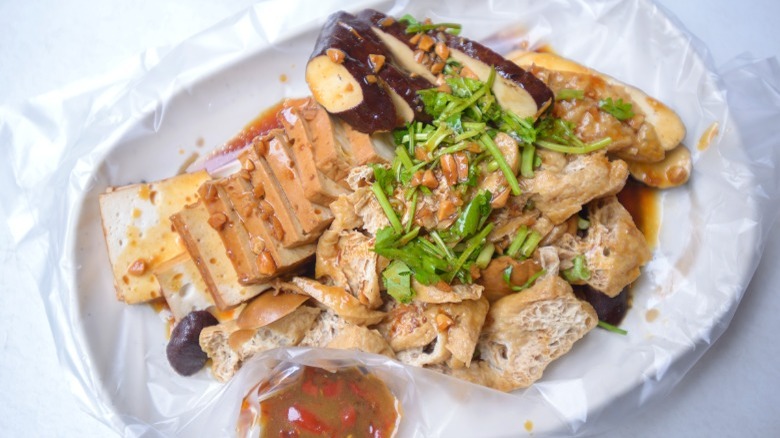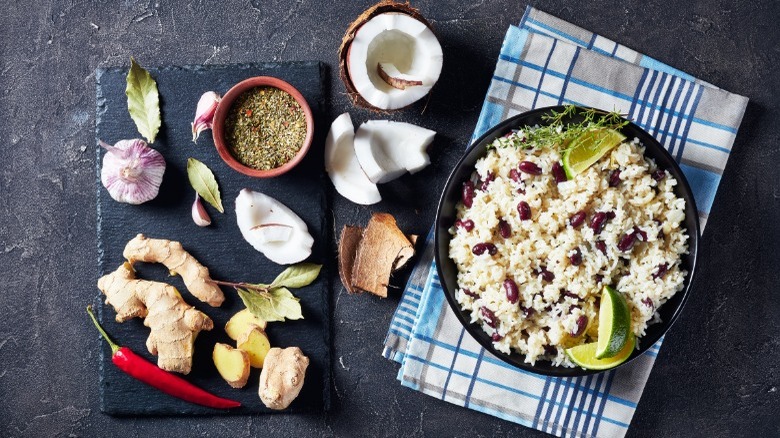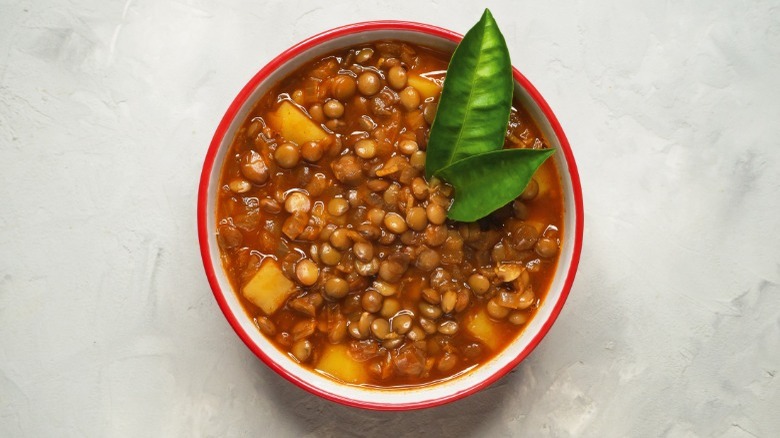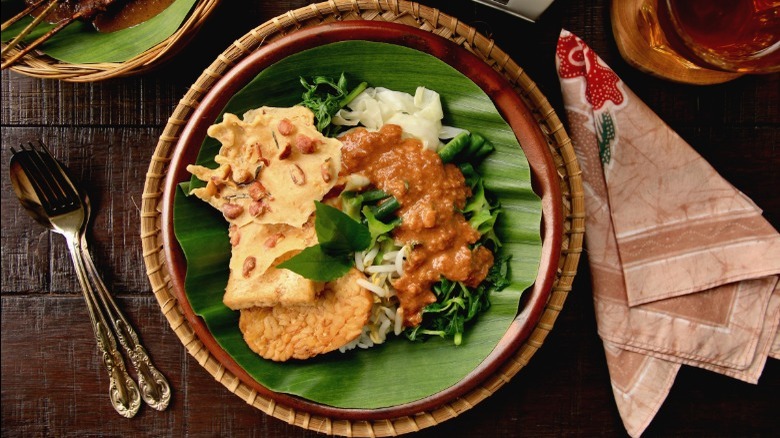15 Cuisines That Are Notably Vegan-Friendly
As a dietary and lifestyle choice, veganism is becoming increasingly popular, and with the growing supply of plant-based alternatives to animal products, lots of global cuisines are becoming more vegan-friendly. However, thanks to a vast array of historical, geographical, and religious factors, many countries already offer plenty of traditional dishes that are naturally plant-based. From the delicate temple cuisines of Japan and South Korea to the hearty stews of Ethiopia, vegan-friendly dishes can be found in every corner of the globe.
Each of the notably vegan-friendly cuisines offers a unique perspective on how plant-based ingredients can be combined and transformed into a delicious array of dishes, from street food staples to hearty soups and sweet treats. And whatever isn't plant-based by nature has likely already been adapted by enthusiastic vegan chefs deeply rooted in their culture. So whether you're a long-time vegan, a new convert, or simply looking to explore the flavors of the world, you are destined to find a cuisine that will tantalize your taste buds.
Ethiopian
Despite having the highest livestock population in Africa, notes Statista, Ethiopia is considered a vegan-friendly country. This is due in part to the Ethiopian Orthodox Church's practice of fasting for approximately 180 days per year, during which they abstain from all animal products. As a result, Ethiopian cuisine has developed a rich tradition of plant-based eating, using a diverse range of vegetables, grains, and legumes to create hearty and flavorful meals.
Among the most iconic Ethiopian dishes is injera, a fermented flatbread made from teff flour, an ancient indigenous grain. Injera is an integral part of yetsom beyaynetu — a vegetarian combo platter of vegetable and legume sauces and stews served on top of it. These dishes are often spiced with berbere and other spice blends. Another vegan staple of Ethiopian cuisine is wat — a general term for stews, each named after its main ingredient. Shiro wat is made from ground chickpeas, misir wat from red lentils, dinich wat from potatoes, and so on. Other vegan options include gomen, a dish made from collard greens, and a variety of vegetable salads.
Chinese
While it may be famous for its meat-centric dishes, Chinese cuisine has some exciting plant-based options to offer thanks to its long-standing tradition of Buddhist vegetarianism, with the first imitation meats and vegetarian restaurants appearing as early as the 13th century. As a result, many Chinese dishes incorporate a wealth of plant-based ingredients, as well as a variety of meat substitutes made from soy and wheat protein, such as mock duck, chicken, and pork. These meat alternatives are often used in vegan versions of classic Chinese dishes.
Among authentic vegan-friendly dishes, there's Buddha's delight, made with braised vegetables and plant-based proteins, and congee — a comforting rice porridge made with savory toppings. Other popular vegan Chinese dishes include scallion noodles, veggie-packed dumplings, braised wheat gluten (hong shao kao fu), and various fermented and stir-fried vegetable appetizers and sides. An iconic yet deceptive dish that exemplifies Chinese cuisine is mapo tofu, which is typically made with minced meat. Fortunately, it can be easily veganized at home. For dessert, you can opt for syrup-doused tofu pudding (douhua) or jian dui — fried sesame balls made from glutinous rice flour.
Georgian
Georgian cuisine has been gaining some traction in recent years. But despite its reliance on animal products, Georgian cuisine is incredibly vegan-friendly. Samarkhvo is the Georgian word every vegan should know: It stands for foods appropriate for fasting, which is a common affair in this predominantly Orthodox Christian country.
When ordering at a Georgian restaurant, start with pkhali — assorted appetizers of ground beets or spinach mixed with walnuts, alliums, and spices. Proceed with nigvziani badrijani, or walnut-stuffed eggplant rolls, and a bite or two of cornbread known as mchadi. Next stop: The iconic dumplings known as khinkali, filled with mushrooms. Don't forget to ask for a serving of ajika or tkemali — the spicy and sour sauces made from red peppers and green plums, respectively. In terms of protein, you can always rely on red beans served as a stew (lobio) or encased in bread (lobiani). For dessert, try grape juice-based delicacies such as churchkhela or pelamushi or even a slice of a fasting Napoleon cake.
Japanese
While typically seafood and meat-heavy, Japanese cuisine has plenty of vegan options. One reason for this is the influence of Buddhist traditions, which emphasize the importance of non-violence and a plant-based diet. Today, Japanese temple cuisine is known as shojin ryori and trying it is akin to fine dining. It always combines five colors and five flavors in every meal, which makes them varied yet balanced. Additionally, Japanese macrobiotic cuisine places a strong emphasis on seasonality and freshness, which means that vegetables and other plant-based ingredients often take center stage.
Soybeans play a huge part in Japanese cuisine, being the base for vegan-friendly foods such as edamame, miso paste, natto, tofu, and soy sauce. The same is true for rice, which can be served plain or become a base for plant-based sushi or onigiri (rice balls commonly made with pickled plum). Another vegan Japanese staple is vegetables, commonly found in the form of pickles or tempura. With veganism on the rise, more dishes that are traditionally non-vegan are getting a plant-based makeover, so you can try umami-packed ramen, karaage (fried chicken), and even vegan caviar all over the country.
Levantine
Levantine cuisine is a diverse culinary tradition encompassing the cuisines of countries like Lebanon, Syria, Jordan, and Palestine. It is known for its emphasis on fresh and flavorful ingredients, many of which are plant-based. Levantine cuisine features a wide variety of vegan dishes, which can be attributed to the importance of vegetarianism in certain religious and cultural traditions in the region, such as Lent and the Islamic month of Ramadan.
One of the most well-known vegan dishes from the region is hummus and falafel — two iconic chickpea-based dishes often served with pita bread. Other popular vegan Levantine dishes include baba ghanoush and muhammara, or dips made from roasted eggplants and peppers, respectively. Za'atar manaqish, a flatbread topped with a mixture of herbs, oil, and sesame seeds, is a vegan staple of Levantine cuisine. Notable rice dishes include mujaddara and maqlouba, prepared with lentils, vegetables, and spices. Tabbouleh, a salad made with bulgur wheat, parsley, and tomatoes, is also a must-try. Finally, you can never go wrong with vegetarian mezze — assorted dips, vegetables, and bread served in small dishes.
Mexican
At a glance, meat and dairy-heavy Mexican cuisine might seem unsuitable for vegans. However, the country's culinary tradition offers a wide range of vegan options, with many dishes centered around corn, beans, rice, and vegetables. This can be attributed in part to Mexico's rich agricultural heritage, which has led to the cultivation of a diverse array of plant-based foods that made up the majority of people's diets until the 16th-century Spanish colonization. Additionally, Mexican cuisine has a strong tradition of lent food, which often features vegan options such as bread pudding (capirotada), cactus salad (ensalada de nopales), and fava bean soup (sopa de habas).
One of the most well-known vegan Mexican dishes is guacamole. Other popular vegan options include black bean soup, vegetable fajitas, and rice and bean burritos. Mexican cuisine also features a variety of vegetable-based salsas, such as pico de gallo, which is made with tomatoes, onions, and jalapeño peppers. Furthermore, many traditional Mexican dishes can be easily veganized at home by replacing meat and cheese with plant-based alternatives. For example, vegan carne asada, a dish traditionally made with sliced grilled meat, can be made with mushrooms.
South Korean
With the explosive popularity of Korean pop music, television, and cinema in recent years came global interest in the country's cuisine. Considering it's synonymous with barbecue and kimchi, can it be considered vegan-friendly? Well, yes and no. Thanks to the strong influence of Buddhism in South Korea, which has led to a long-standing tradition of vegetarianism, there are plenty of traditional vegan-friendly dishes. While an entirely natural, plant-based temple cuisine might seem underwhelming to a seasoned foodie, the episode of Chef's Table featuring Jeong Kwan, a Buddhist nun, will change your mind.
National dishes that are vegan-friendly include chewy rice cakes called tteok (which are available at Trader Joe's), bibimbap, a rice bowl topped with various vegetables, glass noodle stir-fry known as japchae, and glutinous rice porridge (juk), which is sometimes made with vegan-friendly flavorings such as pumpkin, red beans, and black sesame. When traveling to Korea, aim at the numerous vegan-friendly cafes around the country. And if you want to give a shot to recreating traditional dishes at home, you can rely on "The Korean Vegan" cookbook. Finally, picking up a jar of vegan kimchi is always a good idea.
West African
West African cuisine is a rich and diverse culinary tradition. It's largely driven by native root vegetables and grains such as yams, cassava, and millet, as well as the exchange of ingredients with colonizers and traders who introduced new crops like tomatoes, peppers, and peanuts, which have become integral ingredients in West African cuisine.
One of the most noteworthy plant-based ingredients in West African cuisine is fonio, a gluten-free grain that is high in protein and fiber. Fonio is typically used in a variety of dishes, from stews and soups to salads and breakfast porridge. Another staple of West African cuisine is eba, a soft bread made from cassava flour that is typically served with a variety of vegetable-based stews and soups. Additionally, West African cuisine features a variety of plant-based side dishes, such as dodo, a dish made from ripe plantains that are sliced and fried until golden brown. Other popular plant-based West African dishes include jollof rice, a spicy rice dish made with tomatoes and peppers, and okra stew, which is typically served with rice or fufu, a starchy side dish made from cassava flour.
Indian
Indian cuisine is famous for being welcoming to those who don't eat meat. Traditional Indian cuisine emphasizes a plant-based diet, and many regions in India have a diverse range of vegetarian and vegan dishes. South Indian cuisine stands out in particular, as a significant portion of it is naturally vegan.
One popular vegan Indian dish is pani puri, a beloved chaat, or savory snack, that features a crispy shell filled with spiced potatoes and chickpeas and is served with a tangy spiced tamarind and mint water. Another vegan favorite is masala dosa, a crispy, crepe-like dish made from fermented rice and lentil batter with a spiced potato filling. Besan chilla is a popular vegan Indian breakfast dish that is made from chickpea flour and seasoned with spices and vegetables. Other vegan Indian dishes include dal makhani, a creamy lentil dish, veg pulao, a rice dish loaded with vegetables, and aloo puri, a potato and flour bread dish. Additionally, Kashmiri dum aloo is a popular vegan potato dish that features potatoes simmered in a rich, aromatic tomato and spice gravy. And, of course, there are numerous curries and chutneys to choose from.
Thai
Despite its reliance on seafood, eggs, and meat, Thai cuisine is worth a try for any vegan seeking new and exciting flavors. With over 93% of Thailand's population adhering to Buddhism, according to the U.S. Department of State, plant-based foods are commonplace. Another religious influence on the country's cuisine is Chinese Taoism, which emphasizes the balance between humans, animals, and the universe. As a result, a nine-day vegan festival, known as Tesakan Gin Jay, is held every year. During this time, even traditional restaurants offer plant-based versions of Thai dishes, using tofu and wheat gluten as substitutes.
The most famous noodle dish Pad Thai is typically made with fish sauce, dried shrimp, and eggs. Fortunately, it's easy to veganize by using tofu and black salt instead of eggs and replacing fish sauce with soy sauce or a vegan alternative. Thai curry pastes are also a great vegan-friendly ingredient to make rich veggie-packed curries at home. The use of coconut is also a prevalent feature in Thai cuisine, with desserts like sticky mango rice featuring coconut milk as a key ingredient. Finally, there are always vegan Thai restaurants in the U.S. that you can visit to get a better idea of the cuisine.
Italian
Italian cuisine may not be the first cuisine that comes to mind when thinking about vegan food, but it offers a wealth of options for plant-based eaters. Different regions have their own vegan-friendly specialties, with the cuisine of Southern Italy revered for being particularly plant-forward. Even the ones that are not traditionally vegan can be easily made so: A vegan eggplant parmesan is made with non-dairy cheese. On the opposite end of the country, Italy's first vegetarian city, Turin, offers a wide range of suitable food options.
Italian starters, also known as antipasti, feature a variety of vegetable-based dishes such as Roman-style artichokes and caponata, a traditional Sicilian dish made with eggplant, olives, and capers. Pasta dishes are a staple of Italian cuisine, and many are already vegan-friendly. Some examples include pasta e ceci, a comforting dish made with chickpeas, and pasta e fagioli, a hearty soup made with beans. Other vegan pasta dishes include spicy penne all'Arrabbiata, garlicky spaghetti aglio e olio, and bean and vegetable pasta stew known as conchiglie con zucca e fagioli. Italian cuisine also has some vegan-friendly desserts such as fruit sorbet and granita, refreshing flavored ice.
Taiwanese
Taiwanese cuisine has a long tradition of vegetarianism and veganism, which makes it an excellent choice for those following a plant-based diet. Many Taiwanese dishes feature rice, noodles, vegetables, and tofu — once again, we have to thank the religious practices of Buddhism and Yiguandao for that. Additionally, under Japanese colonial rule, animal products were reserved for the wealthy, whereas others had to rely on plant-based foods such as grains, pickled vegetables, and wild greens, further establishing plant-forward food culture.
One of Taiwan's most popular vegan dishes is dougan – dried tofu synonymous with Daxi District, which holds a festival in its honor. Green onion cakes, which are crispy and savory flatbreads often served as a snack, are a favorite, too. Grilled mochi is a night market hit made from glutinous rice that can be savory or sweet. Mock meats, such as vegan beef or pork, are also widely available in Taiwan. Cold noodles are a refreshing plant-based dish perfect for hot summer days. Additionally, lots of Taiwanese breakfast dishes are vegan-friendly as well, such as steamed bao buns that can be made with bean, vegetable, and taro fillings.
Jamaican
Despite being known for its vast array of meat dishes, Jamaica can be a plant-based foodie haven if you know what to look for. The island's cuisine is heavily influenced by the Rastafarian religion, which emphasizes a natural, mostly plant-based diet known as ital (derived from 'vital'). However, most traditional foods are not vegan and require adaptation by home cooks or chefs.
Naturally vegan Jamaican breakfast foods include breadfruit, plantain, boiled banana, and callaloo, or a coconut milk vegetable stew. In addition, lots of types of bread and sides are vegan-friendly. Among them are cassava flatbread (bammy), molasses cake (bulla), coco bread, and turn cornmeal made with coconut milk, herbs, and spices. One of Jamaica's most famous vegan dishes is rice and peas — a simple, flavorful mix of grains, legumes, and vegetables served on its own or as a side.
With the rise of veganism, many traditional dishes are being reinvented in plant-based forms — think jerk mushrooms, vegetable and soy patties, and jackfruit brown stews. With its abundance of fresh, flavorful ingredients and bold, spicy flavors, Jamaican cuisine is easily adaptable for vegans looking for a taste of the Caribbean.
Persian
Persian cuisine, also known as Iranian cuisine, is rich in flavors and textures, primarily based on various vegetables, fruits, grains, and legumes. Persian cuisine has a long history of vegetarian and vegan-friendly dishes, with a large number of traditional dishes that are naturally free of animal products. Despite religious fasting practiced by the predominantly Muslim population, only those adhering to "Veganadan" make it into a fully plant-based way of eating.
Vegetables such as eggplant, tomato, and pumpkin are frequently used in stews and sauces, and lentils and chickpeas are common. Many dishes in Persian cuisine also use fresh herbs and spices such as saffron, turmeric, and cardamom to create unique and delicious flavors. In addition, Persian cuisine includes a wide range of vegan-friendly bread, such as barbari, sangak, and lavash. Popular traditionally plant-based dishes nowadays made with meat, such as adas polo (lentil rice), khorak lubia (bean stew), and khoresh-e-fesenjan (walnut and pomegranate stew), are all easily veganized with modern meat alternatives. Herby green ash-e-reshteh, or Persian noodle soup traditionally served at Nowruz (Persian New Year celebrated on the spring equinox), can be easily made vegan by using plant-based yogurt or omitting it altogether.
Indonesian
Indonesian cuisine is renowned for its vibrant flavors, rich spices, and unique combinations of ingredients. It is also increasingly becoming a favorite among vegans due to its wide variety of plant-based dishes. If anything, Indonesian cuisine earned its spot on the list as the birthplace of the staple fermented soybean ingredient vegans know and love. That's right; we're talking about tempeh — a versatile plant-based protein source. Additionally, Indonesian cuisine is characterized by its use of coconut milk and soy sauce, both of which are vegan-friendly.
If you are looking to explore a new vegan-friendly cuisine, consider trying some of the vegan Indonesian recipes. Many Indonesian dishes are prepared with vegetables, such as eggplant, okra, and bok choy. Indonesian cuisine also features a variety of rice dishes, including nasi goreng, a popular fried rice dish, and nasi campur, a rice dish served with a variety of vegetables, tofu, and tempeh. Additionally, many Indonesian dishes are served with a variety of sambals, which are sauces prepared from a combination of herbs, spices, vegetables, and other ingredients. Gado-gado, a vegetable salad with rich peanut sauce, and gudeg, a jackfruit curry, are also worth trying.
